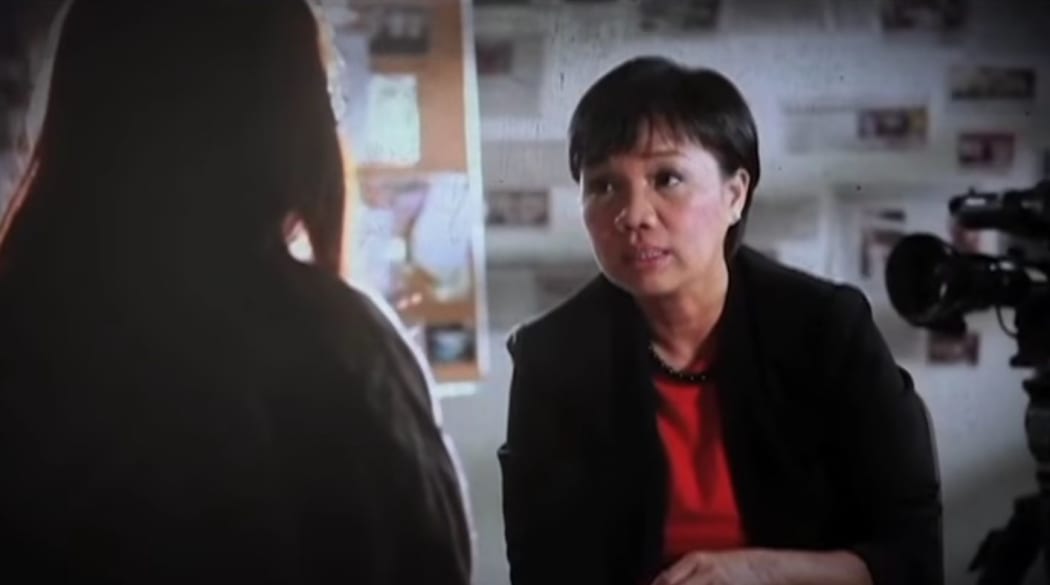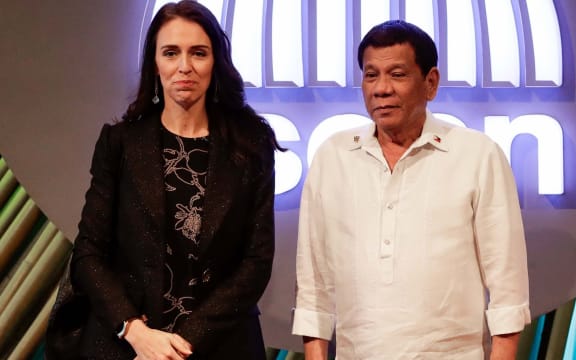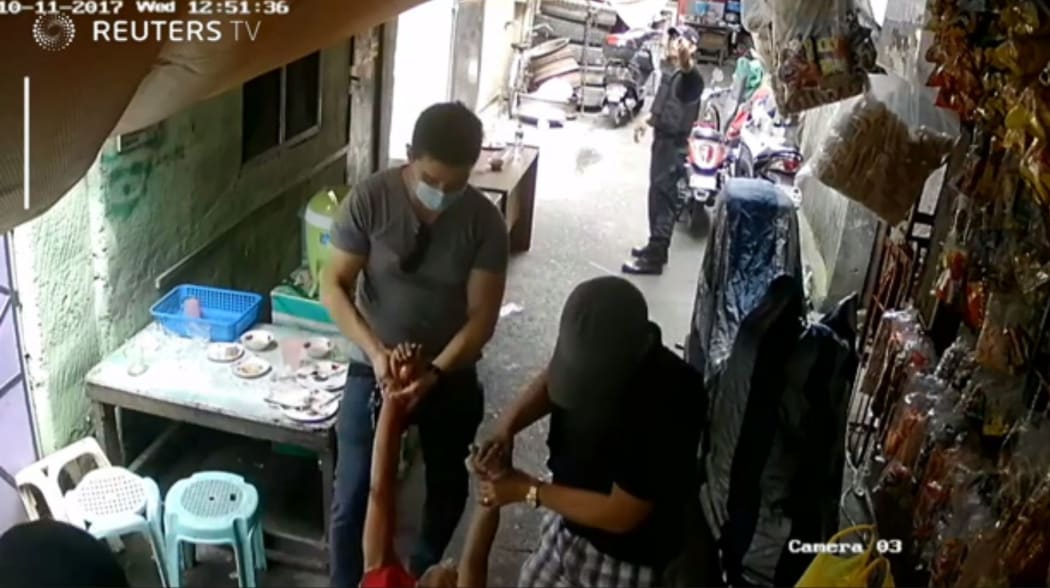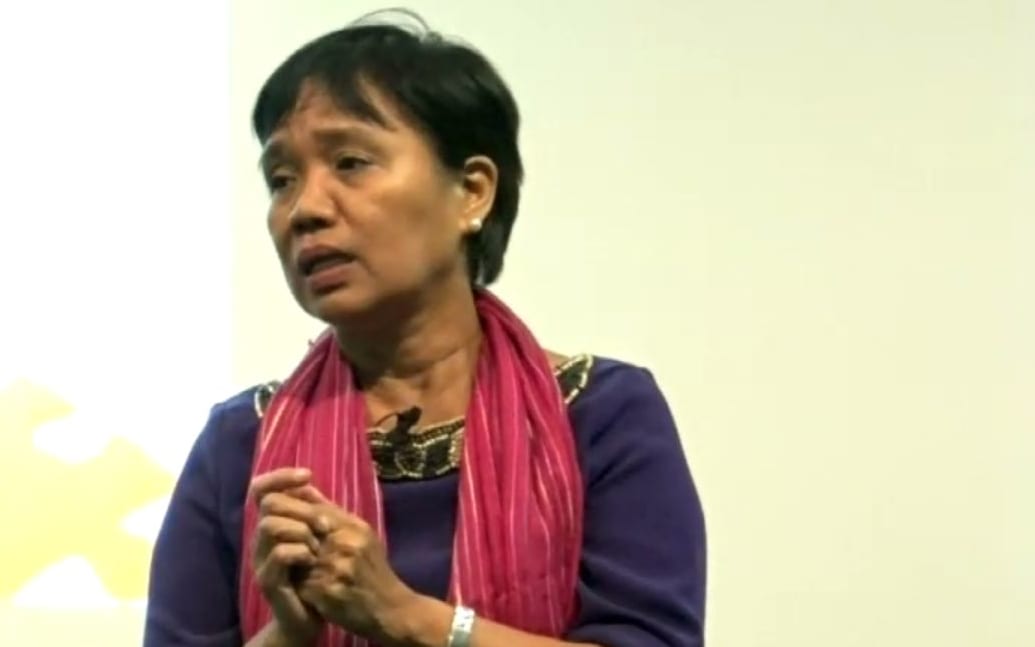Journalists in the Philippines take their life in their hands doing their job. What was already one of the world's riskiest places to be a reporter has become even more difficult under President Rodrigo Duterte and his ‘war on drugs’.

Malou Manghas on her documentary show ID on GMA News TV in the Philpppines. Photo: screenshot / YouTube
When the Philippines appears in the news here these days, it's not normally good news.
Most stories focus on the maverick president Rodrigo Duterte - nicknamed The Punisher - who is often compared to Donald Trump. Many of those stories also refer to the bloody crackdown of his 'war on drugs' launched after he took power last year.
Thousands of people have been killed by vigilante-style policing since mid-2016.
In her APEC visit to Manila last month New Zealand's prime minister Jacinda Ardern said the deaths “require investigation ... at the very least" - and in a rather awkward-looking press conference, she also made a point of telling the president New Zealand's police are unarmed.

Jacinda Ardern and president Rodrigo Duterte in Manilla Photo: AFP
The culture of impunity allowing police to kill suspected drug users and sellers in the Philippines is also putting journalists under severe pressure - and in some cases getting them killed too.
The extra-judicial killings are often officially explained as self-defence or the results of shoot-outs. But sometimes media reports show otherwise.
This week, Reuters news agency published a startling multi-media report called Operation Kill detailing the extra-judicial killings of three men and how the circumstances were covered up by police officers.
"The Philippines has one of the most free presses in Asia, and it also one of the rambunctious in its exercise of freedom," said Malou Mangahas, the executive director of the Philippine Center for Investigative Journalism, who spoke at Journalism Under Duress, a summit marking the 10th anniversary of Auckland University of Technology’s Pacific Media Centre.
"The drug problem is very serious and that is accepted across the country. It is the method of the war on drugs is what has divided it," she told Mediawatch.
"Some journalists reporting this have been called unpatriotic and un-Philippino," said Ms Manghas.
Like Trump, Pres Duterte has pursued vendettas against specific media outlets whose reporting has annoyed him. One TV network was targeted for not playing his campaign ads during last year's election. Other media companies have been targeted for not paying the correct taxes and an online news agency was accused of breaking the law by bringing in money from overseas.
"Sometimes President Duterte will say something and the next day insist he was only joking," she said.
She says six journalists have been killed on the job since Duterte came to power. There are more cases of death threats, rape threats and physical attacks - and also online harassment, trolling and false reports from pro-government bloggers and netizens.
"Journalists in the cities like Manilla can call for help and it will come. But in the provinces there may be one judge, one police chief, one mayor and one governor who are often friendly to each other," she said.
There's also what she calls "benign harassment" - like offers of bribes and withholding of information.

CCTV footage obtained by Reuters TV shows police killing suspects and covering up the circumstances. Photo: screenshot / Reuters TV 'Operation Kill'
Reporting the truth of the war on drugs is difficult because getting sources to comment can be impossible. Malou Mangahas says few people want to be quoted as witnesses because the anti-drug policing agency has a "watchlist" of people suspected of being in contact with drug users and drug sellers. Doctors, lawyers and families of victims fear ending up on the list because it means they could be targeted later
"The drug war has produced a 'Big Brother' directory of suspected users and pushers. In recent months some of the people on that list have been killed. There is a climate of fear that you could be next," she told Mediawatch.

Malou Mangahas speaking at the AUT's Pacific Media Centre summit 'Journalism Under Duress' Photo: screenshot / PMC
One year ago, one of President Duterte’s first actions was to create a task force to investigate violations of journalists' rights to life, liberty and security.
“The President wanted this . . . because he cares for you - and he believes in freedom of the press,” his communications secretary Martin Andanar told reporters at the time.
Is this a genuine concern for the safety of journalists? Does it work?
"(Cases) are supposed to be investigated, filed in court and prosecuted. But we were talking to them last week and they said they have no money, no people and they are not even doing education among police and officials."
She says the main problem is bad police investigation.
"They lose physical evidence, the crime scenes are violated. No-one takes care of witnesses properly," she says. "They don't have money for a witness protection programme," she said.
Even before the Punisher took power, the Philippines was one of the riskiest places to be a reporter.
The world’s worst single atrocity committed against the media anywhere happened in Ampatuan in the southern Philippines in November 2009.
32 journalists were among 58 people killed. No-one has been prosecuted.
"That left over three dozen orphans. After the burial reality bites and the mothers and children left behind have to find a livelihood. The government doesn't do that for the victims of media murders," said Malou Mangahas.
New Zealand journalists through their union have raised funds to support their families through the Media Safety and Solidarity fund.

